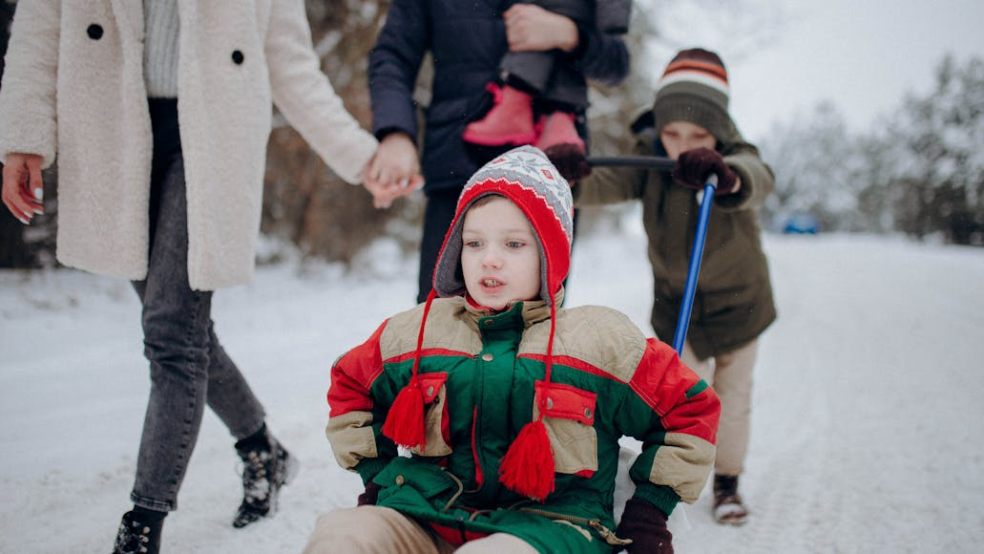
Safety Tips for Winter Holidays in Europe
Winter holidays in Europe offer a magical experience, with snow-capped mountains, festive Christmas markets, and charming historic cities. However, the cold temperatures and winter conditions can present certain challenges. From icy roads to potential health risks, it’s important to plan ahead and take precautions to ensure your winter getaway remains safe and enjoyable. Here are some essential safety tips for winter holidays in Europe:
1. Dress in Layers
One of the most important aspects of staying safe and comfortable during a winter holiday is dressing appropriately for the weather. European winters can be unpredictable, especially in northern and mountainous regions. To stay warm and avoid hypothermia or frostbite, follow these layering tips:
- Base Layer: Start with moisture-wicking clothing to keep sweat off your skin, such as thermal tops and leggings.
- Mid Layer: Add an insulating layer, like fleece or down jackets, for warmth.
- Outer Layer: A waterproof, windproof coat will protect you from the elements, especially in snowy or rainy conditions.
- Accessories: Don’t forget gloves, hats, scarves, and thermal socks. Insulated boots with good grip are also essential for walking on slippery surfaces.
2. Check the Weather Forecast Regularly
Weather conditions can change rapidly in winter, particularly in mountainous regions or northern parts of Europe. Before heading out for any outdoor activity, check the weather forecast to avoid being caught off guard. Pay attention to warnings about snowstorms, icy conditions, or extreme cold. Apps and websites like AccuWeather or local meteorological services can provide up-to-date and reliable information to help you plan your day safely.
3. Be Prepared for Icy Roads
If you’re driving during the winter, particularly in countries with mountain roads or rural areas, ice and snow can create hazardous driving conditions. Here are some tips to stay safe on the road:
- Winter Tyres: Make sure your vehicle is equipped with winter tyres, which provide better traction on icy or snowy roads.
- Driving at Reduced Speeds: Always drive slower than usual, allowing more time to react to sudden changes in road conditions.
- Carry Emergency Supplies: Always have an emergency kit in your car, including blankets, water, snacks, a flashlight, and a first-aid kit. In case you get stuck, these items could be vital.
- Use Chains Where Required: In some regions, tyre chains may be mandatory during heavy snow. Check the local regulations before you travel.
4. Stay Active, But Know Your Limits
Winter activities such as skiing, snowboarding, and ice skating are popular during the winter months, but it’s essential to prioritize safety, especially if you're new to these sports or haven't done them in a while:
- Take Lessons: If you're skiing or snowboarding for the first time, consider taking lessons from a certified instructor. Learning proper technique can prevent accidents.
- Know Your Skill Level: Stick to slopes or trails that match your ability. Don’t push yourself too hard, as winter sports can be physically demanding.
- Wear a Helmet: Always wear a helmet when skiing or snowboarding to protect your head from falls or collisions.
- Warm Up: Before heading out, stretch and warm up your muscles to prevent strains or sprains.
- Precautions: Take out travel insurance in case of slips on ice.
5. Avoid Slippery Pavements
Slipping on icy sidewalks and pavements is a common winter hazard, especially in cities with freezing temperatures. To avoid accidents:
- Wear Proper Footwear: Choose shoes or boots with good tread and slip-resistant soles to maintain traction on ice and snow.
- Walk Carefully: Take your time when walking in slippery areas. Short, deliberate steps can help you maintain balance and reduce the risk of falling.
- Use Ice Grippers: Consider using ice grippers or traction devices that can be attached to the soles of your shoes. They can be particularly helpful when navigating icy streets.
6. Stay Hydrated and Nourished
Cold temperatures can be deceiving when it comes to hydration, as people often forget to drink enough water during the winter months. However, staying hydrated is just as important in cold weather as it is in the heat. Here’s how to maintain your energy and health:
- Drink Water: Carry a reusable water bottle and drink throughout the day. It’s easy to forget to hydrate when it’s cold, but dehydration can still happen in winter.
- Eat Nutrient-Dense Foods: Winter activities, such as skiing or hiking, require plenty of energy. Make sure to fuel your body with warm, nutritious meals that include proteins, carbohydrates, and healthy fats.
7. Be Mindful of the Short Days
In many parts of Europe, winter days are shorter, with daylight hours often limited to just a few hours. This can affect your ability to explore or travel safely. To stay safe in the dark:
- Plan Daylight Activities: Try to plan outdoor activities during daylight hours, especially if you’re unfamiliar with the area or navigating new locations.
- Use Proper Lighting: If you do venture out after dark, make sure you have good lighting, such as a headlamp or flashlight, and wear reflective clothing or accessories if walking or cycling.
8. Know How to Handle Emergencies
Winter accidents, such as slipping, getting lost, or encountering severe weather, can happen unexpectedly. Being prepared for emergencies can make all the difference:
- Emergency Numbers: Familiarize yourself with the local emergency numbers in the country you’re visiting. In most European countries, the general emergency number is 112.
- First Aid Kit: Carry a basic first-aid kit, especially if you plan to spend time in remote areas. Ensure it includes essentials like bandages, pain relievers, antiseptic wipes, and any personal medications.
- Know Local Resources: Research nearby hospitals, medical centers, or rescue services in case of injury or illness. Knowing where to go in an emergency will save time and reduce panic.
9. Protect Your Skin
Winter weather, especially in colder, northern regions of Europe, can be harsh on your skin. Cold air and wind can cause chapped lips and dry skin, and exposure to the elements can lead to frostbite. Protect your skin with the following tips:
- Moisturize: Use a good moisturizer on your face and hands to prevent dryness. Consider a lip balm with SPF to protect your lips from cracking.
- Wear Sunscreen: Snow reflects the sun’s rays, so it's possible to get sunburned even in winter. Apply sunscreen to exposed skin, especially if you’re skiing or hiking in snowy conditions.
10. Follow COVID-19 Guidelines
While travel has largely returned to normal, some countries may still have specific health and safety protocols in place regarding COVID-19. Stay informed about any restrictions or requirements for testing, vaccination, or mask-wearing, and adhere to local guidelines. These measures will help ensure your safety and the safety of others during your winter trip.
Conclusion
Winter holidays in Europe offer a host of opportunities for adventure, relaxation, and cultural exploration. By taking these safety tips into account, you can minimize the risks associated with cold weather and winter activities, ensuring a memorable and enjoyable trip. From dressing in layers and monitoring the weather to practicing safe travel habits and preparing for emergencies, a little preparation goes a long way in keeping your winter getaway safe and stress-free. Stay warm, stay safe, and enjoy the winter wonderland that Europe has to offer!













